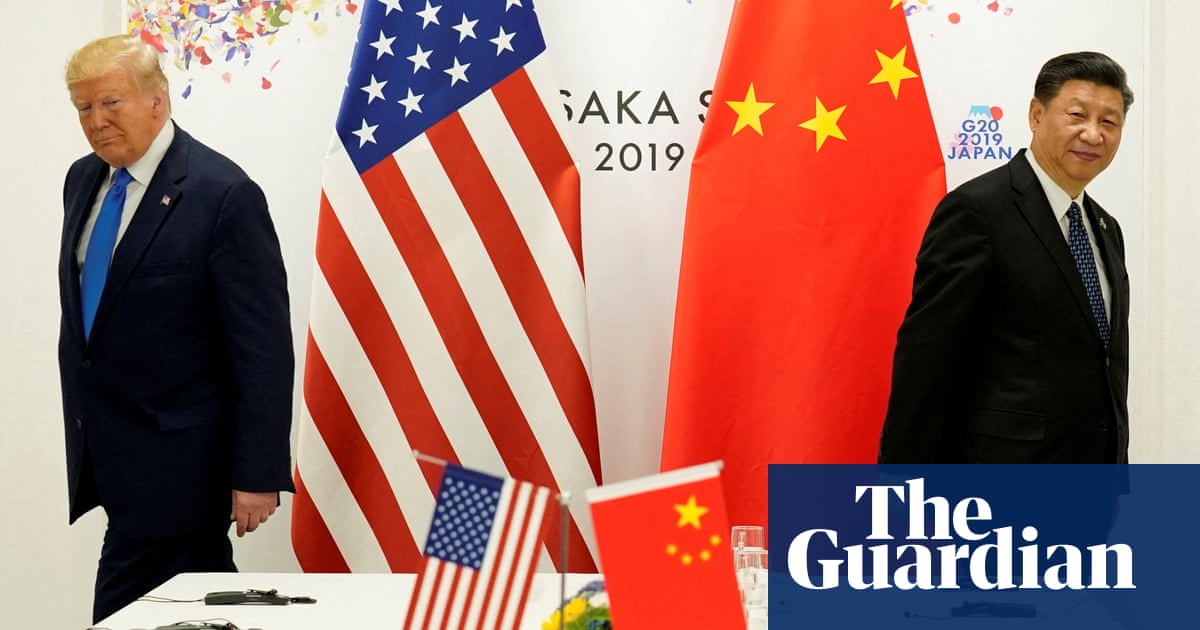US Postal Service suspends incoming parcels from China and Hong Kong

The US Postal Service has suspended incoming parcels from China and Hong Kong until further notice, amid a growing trade conflict between the US and China.
It comes as Donald Trump said he is not in a hurry to speak to his Chinese counterpart, Xi Jinping, despite expectations that they would hold talks after announcing tit-for-tat tariffs.
The postal service did not say why it was suspending incoming parcels, but among Trump’s measures against China are a broad-based tariff on imports, and the elimination of the de minimis duty-free exemption for low-value packages.
The suspension – which took effect immediately – appears likely related to the latter, and is expected to have significant impact on US consumer orders from retailers including Amazon. In 2023, a US government report said 30% of small packages coming into the US were from two Chinese e-commerce companies, Shein and Temu, alone. The USPS declined to answer further questions.
On Tuesday, minutes after Trump’s threatened tariffs on Chinese goods came into effect, Beijing said it was imposing levies on imports of US energy, vehicles and equipment.
Earlier, Trump suspended threatened duties against Mexico and Canada for a month after both countries vowed to step up measures to counter flows of the drug fentanyl and undocumented migrants into the US.
Trump had signalled earlier that the talks with Xi could take place early this week, but addressing reporters at the White House on Tuesday afternoon he said he was in “no rush” to speak with him.
Stock markets wavered as investors braced for volatile market activity in the coming weeks over Trump’s threatened tariffs on his country’s three biggest goods trading partners.
Trump imposed fresh 10% tariffs on Chinese goods, on top of levies that were already in place against Washington’s biggest economic competitor. Mexico and Canada had faced 25% tariffs.
White House press secretary Karoline Leavitt said on Monday that Trump was due to talk to Xi, but on Tuesday said she had no “updates on when that call will take place.”
“He is not going to allow China to continue to source and distribute deadly fentanyl into our country, that was the reason for this tariff,” Leavitt told reporters outside the West Wing of the White House.
China unveiled 15% levies on imports of coal and liquefied natural gas from the US, while crude oil, agricultural machinery, big-engined vehicles, and pickup trucks face 10% duties.
Beijing says it will also investigate Google and the US fashion group that owns Tommy Hilfiger and Calvin Klein.
China’s government said the measures were in response to the “unilateral tariff hike” by Washington. It said it would also file a complaint to the World Trade Organization over the “malicious” levies.
Additionally, it unveiled fresh export controls on rare metals and chemicals including tungsten, tellurium, bismuth and molybdenum.
China is a major market for US energy exports and according to Beijing customs data, imports of oil, coal and LNG totalled more than $7bn last year.
But that is dwarfed by China’s imports from more friendly powers such as Russia, from which it bought $94bn worth last year.
Trump has made tariffs a key foreign policy tool of his second term, saying that tariff is the “most beautiful” word in the dictionary.
The Mexican president, Claudia Sheinbaum, and the Canadian prime minister, Justin Trudeau, both struck last-minute deals with Trump on Monday to tighten border measures, leading to a 30-day pause on his threatened tariffs.
Talks will continue for the next month on broader pacts.
Mexico said on Tuesday it had begun deploying 10,000 border troops as promised to Trump as part of the agreement to halt tariffs.
More than 450,000 people have been murdered in Mexico since it launched a major offensive against drug cartels in 2006.
Trudeau said Canada would appoint a “fentanyl tsar” and list drug cartels as terrorist organisations.
Agence France-Presse contributed reporting
